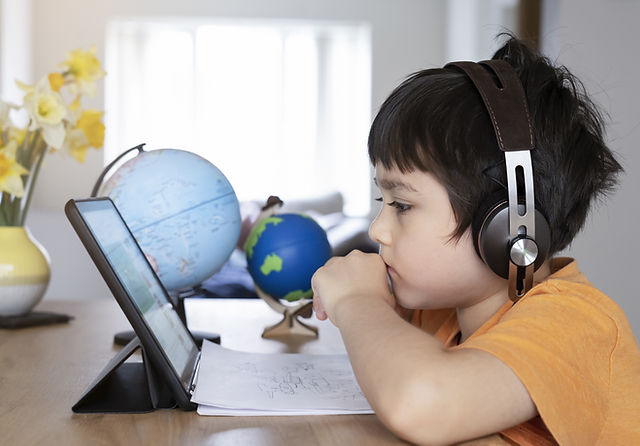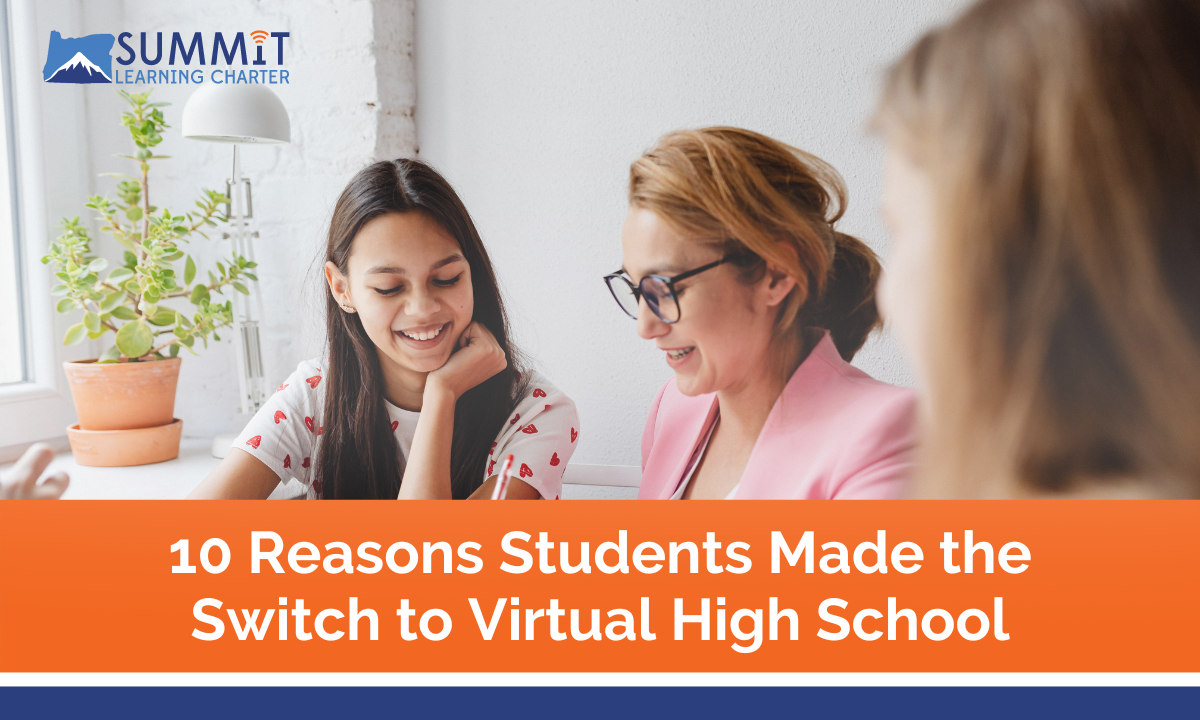How Online Schools Are Adapting to Meet the Needs of Every Student
Online education has transformed the landscape of learning in the 21st century, bringing students and educators together in a digital space. However, this evolution is more than just a shift from classrooms to screens. It’s about adapting to the diverse needs of every student, ensuring that no one is left behind. In this article, we’ll explore how online schools are evolving to create more inclusive and personalized educational experiences. So, grab a cup of coffee, get comfy, and let’s dive in!

Understanding the Diverse Needs of Students
Every student is unique, bringing their own set of strengths, challenges, and learning styles to the table. In traditional brick-and-mortar schools, some students thrive while others may struggle to keep up or feel disconnected. Online education is stepping in to bridge these gaps by offering a variety of learning modalities.
Many students come equipped with different skills and talents, whether they excel in writing, mathematics, or art. By acknowledging these differences, online schools can tailor their curriculums to provide a more engaging and relevant education. With a focus on inclusivity, these platforms are keen to understand the needs of every student, addressing learning disabilities, language barriers, and even differing cultural backgrounds.
A fundamental goal of online education is to create a learning environment that promotes equity. You should feel encouraged to explore your interests and learn at your own pace, rather than being confined to one rigid educational structure. This understanding of diversity fuels the ongoing adaptations occurring in online schools.
Flexible Learning Schedules
One of the standout features of online education is the flexibility it offers. Traditional schools operate on strict schedules, which can be challenging for students who have extracurricular commitments, part-time jobs, or family responsibilities. Online schools are shaking up this norm by allowing students to choose when they want to learn.
This flexibility is not just about convenience; it’s about allowing you to learn when you are most focused and receptive. Some learners perform best in the early morning, while others might feel more productive in the evenings. By adapting to your preferences, online schools enable you to create a personalized learning routine that aligns with your lifestyle and maximizes your educational outcomes.
Moreover, if you face unforeseen circumstances—like an illness or a family emergency—you can often adjust your learning schedule with minimal disruption. This adaptability can lead to a more positive educational experience, as you can maintain a balance between your academic responsibilities and personal life.

Diverse Learning Modalities
Different students learn in different ways, and online schools are rising to the occasion by offering a variety of learning modalities. Whether you’re a visual learner who thrives on videos, an auditory learner who benefits from discussions, or a kinesthetic learner who prefers hands-on activities, online education has something for everyone.
For example, many platforms incorporate multimedia tools—like interactive videos, podcasts, and simulation games—into their curriculums. This not only makes learning more engaging but also allows you to absorb information in a way that resonates with you. Some platforms even offer personalized learning pathways, meaning you could dive deeper into subjects that interest you while moving at your pace.
Additionally, online schools are increasingly utilizing artificial intelligence to analyze your learning patterns. By gathering data on your performance, they can suggest resources tailored specifically to your needs, helping you to focus on areas where you might need extra help or to further develop skills you’ve mastered.
Support Systems and Resources
Navigating the world of online education can sometimes feel overwhelming, especially when you lack immediate access to teachers and peers. Recognizing this challenge, online schools have developed robust support systems to ensure that students like you always have the assistance you need.
Many online programs offer a mix of synchronous (live) and asynchronous (pre-recorded) lessons, allowing you to choose how you engage with the material. Live classes and Q&A sessions give you the opportunity to interact directly with educators, while asynchronous content lets you learn at your own pace. Additionally, many platforms offer 24/7 access to resources, such as virtual libraries, tutoring services, and online forums where you can connect with fellow students.
Moreover, educators are often just one email or message away. Many online schools emphasize open communication, ensuring that you can reach out for help or clarification on assignments when you need it. This structure promotes accountability and motivates you to stay engaged in your education.

Community Building in Online Education
A common misconception about online schooling is that it’s a lonely experience. However, many online programs are working tirelessly to foster a sense of community among students. Social connection is crucial for emotional well-being and motivation, and schools are leveraging technology to create virtual communities where you can interact, collaborate, and build relationships.
Discussion boards, group projects, and collaborative learning platforms are common features in modern online education. These tools allow you to share ideas and engage with classmates in meaningful ways. When you work on projects with peers, you gain new perspectives and enhance your problem-solving skills—benefits that mirror those of traditional classrooms.
In addition, many online schools also host events, such as virtual clubs, workshops, and guest speakers. These activities serve to create a sense of belonging and allow you to explore your interests outside traditional academics. The more connected you feel to the community, the more likely you are to stay engaged and committed to your learning journey.
Personalizing Learning Experiences
Personalization is at the heart of the online education movement. By harnessing the power of technology, online schools can create tailored learning experiences that cater to individual needs. This approach to education is a game-changer for students, you included, who need more than the one-size-fits-all curriculum often found in traditional settings.
For instance, many online programs allow you to set your own learning objectives and track your progress. This ability to self-regulate can better engage you in your education and empower you to take ownership of your learning. Add to that the fact that assessments and evaluations can also be personalized to suit your learning style and preferences.
Additionally, adaptive learning technologies use algorithms to adjust content and difficulty based on your performance. If you’re excelling in a particular subject, the system might present more challenging materials to push you further. Conversely, if you’re struggling, it can offer additional resources or simulations to reinforce the material until you feel more confident.

Bridging the Gap for Diverse Learners
Online schools are also shining a spotlight on students with diverse learning needs, striving to create environments where all learners can thrive, regardless of their backgrounds. Whether you have a learning disability, are an English Language Learner (ELL), or come from a different educational system, online education aims to meet you where you are.
To this end, many online programs have developed specialized curriculums and support resources. For example, you may find programs that offer sign language interpreters, translation services, or specially trained instructors who understand the unique challenges faced by students with disabilities.
Moreover, online schools understand the importance of cultural representation in education. By integrating diverse perspectives and curriculums, they create a more inclusive environment where every student can see themselves reflected in the material. This representation not only enriches your learning experience but also fosters a sense of belonging.
Engagement Through Gamification
Who says learning can’t be fun? Gamification is an innovative approach that many online schools are using to increase student engagement. By folding elements of game design, such as scoring systems, achievements, and challenges, into the educational experience, these programs are transforming the way you interact with content.
This method creates a more playful atmosphere that encourages you to explore, take risks, and learn without fear of failure. When educational tasks are framed as games, you may find that you’re more likely to participate actively, collaborate with peers, and persist in overcoming challenges.
Incorporating gamified elements can also provide instant feedback, allowing you to track your progress and feel a sense of achievement as you complete levels and master skills. This not only makes learning feel more rewarding but also aligns with your natural desire for recognition and success.

Preparing for an Evolving Job Market
As the world changes, so too do the demands of the job market. Online education is adapting to this dynamic landscape by offering courses and programs that focus on relevant 21st-century skills. This includes not only technical skills but also critical thinking, emotional intelligence, and adaptability—skills that are essential in today’s world.
Online schools recognize that learners like you must be prepared for the workforce of tomorrow. By incorporating practical applications, project-based learning, and even internships into the curriculum, these programs equip you with the tools necessary for success. This focus on real-world skills not only enhances your employability but also ensures that you’re ready to tackle the challenges of the ever-evolving job market.
Moreover, many online schools partner with businesses and organizations to stay updated on industry trends. This collaboration ensures that your education aligns with what employers are looking for, giving you a competitive edge as you enter the workforce.
Lifelong Learning Opportunities
The concept of lifelong learning is at the forefront of modern education. Online schools are embracing this philosophy by offering various opportunities to continue your education beyond traditional schooling. Whether you’re a recent graduate or a seasoned professional looking to reskill, there are countless options available.
Online courses, certification programs, and even workshops can help you stay current in your field and adapt to changing demands. Many platforms offer micro-credentials that allow you to gain new skills in a short time, making it easy for you to enhance your resume and career prospects.
This push for lifelong learning not only benefits you as an individual but also contributes to a more educated and adaptable workforce. In a world where change is constant, the ability to upskill and adapt is invaluable, and online education is paving the way for you to thrive in your personal and professional life.
Nurturing Mental Health and Well-Being
The world of education, be it online or offline, can be stressful. Understanding that mental health is crucial for academic success, many online schools are taking proactive measures to support the emotional well-being of their students.
This might include offering access to mental health resources, such as counselors or support groups. Online platforms often emphasize mindfulness and stress management techniques, recognizing that a healthy mindset is essential for effective learning. Many programs provide flexible deadlines or work accommodations to help you maintain a healthy balance between academics and life.
Creating a space where you can comfortably express your feelings and concerns is vital to nurturing your learning journey. The more supported you feel, the better equipped you are to tackle the challenges that come your way.
The Future of Online Learning
As we look towards the future, it’s clear that online schools will continue to evolve. With advancements in technology, online education will become increasingly dynamic and responsive to the needs of every student.
Innovation, such as virtual reality (VR) and augmented reality (AR), has the potential to transform how you engage with educational content. Imagine embarking on a virtual field trip to historical sites or conducting science experiments in a simulated lab without leaving your home. These technologies could create rich, immersive experiences that deepen your understanding of complex subjects.
Furthermore, ongoing research in cognitive science will continue to inform best practices in online education, encouraging schools to adapt and refine their teaching approaches. As a student, you can look forward to even more personalized learning experiences, tailored to suit your unique needs.
Conclusion
Online education is not just about academics; it’s about creating a supportive, adaptive, and inclusive environment where every student can thrive. By recognizing the diverse needs of learners, online schools are embracing flexibility, personalization, and community building to foster meaningful educational experiences. From offering diverse learning modalities to prioritizing mental health, they are all about ensuring that you have the tools and resources necessary for success.
In this ever-evolving landscape, you play a crucial role in your learning journey. Embrace the opportunities presented to you by online education, stay engaged, and remember that your unique perspective and experiences are what make the learning environment rich and vibrant.
If you found this article helpful, consider clapping for it, leaving a comment on your thoughts, and subscribing to my Medium newsletter for more updates. Together, we can explore the evolving world of online education and the myriad of ways it can serve you and your peers!